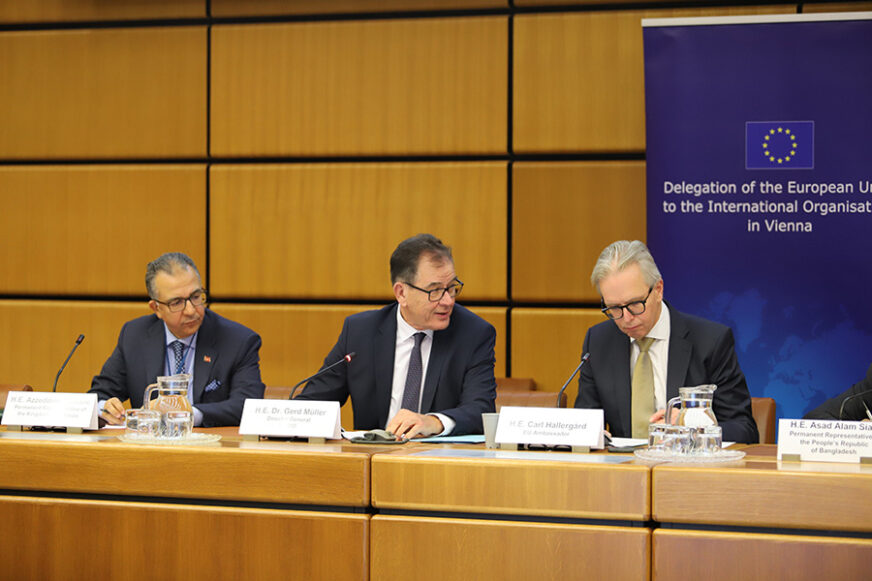
The event took place on 26 November 2024 in Vienna International Centre (VIC), Conference Room CR-7 (VIC, C-building, 7th floor) as part of the 52nd session of the UNIDO Industrial Development Board (IDB).
The objective of this event was to demonstrate the urgency and applicability of the circular economy through concrete results achieved across regions, showcased by a number of EU-funded projects implemented by UNIDO.
During the event, UNIDO presented the achievements in the promotion and implementation of resource efficiency and circular economy in the Eastern Partnership countries within the two EU-funded projects: EaP GREEN and EU4Environment.
Due to the efforts and conducted work over ten years 36 RECP Clubs were established, engaging 660 enterprises. Potential cost savings are estimated over 18 million Euros per year. Within EU4Environment, additionally, UNIDO has launched three new activities:
- Industrial Waste Mapping (IWM) to support circular economy practices and reduce waste.
- Eco-Industrial Parks (EIP) as hubs for resource efficiency and sustainable industrial practices.
- Single Market for Green Products (SMGP) initiative that promotes a unified approach to evaluating and communicating the environmental performance of products (Product Environmental Footprint, PEF) within the EU market.
Background
A transition to a circular economy is one of the European Union’s priorities and will help to reduce pressure on natural resources and create sustainable growth and jobs. It is also a prerequisite to achieve the EU’s 2050 climate neutrality target and to halt biodiversity loss. Moving away from the linear “take-make-use-dispose” model and transitioning to a regenerative growth model is essential to keep resource consumption within planetary boundaries. In a circular economy, the value of products, materials and resources is maintained in the economy for as long as possible, and the generation of waste is minimized. The current linear economy continually increases its demands of scarce natural resources. By using and consuming in a more circular way, the impacts of human economic activities on the environment, including on biodiversity, can be substantially reduced.
Through UNIDO, the EU is funding multiple regional and single-country interventions supporting their transition towards a circular economy, engaging relevant actors across value chains, including governments and private sector participants.
Resource Efficiency and Circular Economy implementation in the Eastern Partner countries (2014-2024) (presentation made by Ms Tatiana Chernyavskaya)





